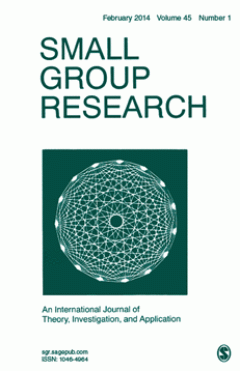Filter by

Bud-Sex: Constructing Normative Masculinity among Rural Straight Men That Hav…
This study draws on semistructured interviews with 19 white, rural, straight-identified men who have sex with men to understand how they perceive their gender and sexuality. It is among the first to use straight men’s own narratives, and helps address the underrepresentation of rural masculinities research. Through complex interpretive processes, participants reworked non-normative sexual pract…
- Edition
- Volume 31, Issue 1, February 2017; pp. 51–73
- ISBN/ISSN
- 08912432
- Collation
- -
- Series Title
- Gender & Society
- Call Number
- -

Gender-Fluid Geek Girls: Negotiating Inequality Regimes in the Tech Industry
How do technically-skilled women negotiate the male-dominated environments of technology firms? This article draws upon interviews with female programmers, technical writers, and engineers of diverse racial backgrounds and sexual orientations employed in the San Francisco tech industry. Using intersectional analysis, this study finds that racially dominant (white and Asian) women, who identifie…
- Edition
- Volume 31, Issue 1, February 2017; pp. 28–50
- ISBN/ISSN
- 08912432
- Collation
- -
- Series Title
- Gender & Society
- Call Number
- -

Beyond the Chilly Climate: The Salience of Gender in Women’s Academic Careers
The prevailing metaphor for understanding the persistence of gender inequalities in universities is the “chilly climate.” Women faculty sometimes resist descriptions of their workplaces as “chilly” and deny that gender matters even in the face of considerable evidence to the contrary. I draw on interviews with women academics (N=102) to explore this apparent paradox, and I offer a theoretical s…
- Edition
- Volume 31, Issue 1, February 2017; pp. 5–27
- ISBN/ISSN
- 08912432
- Collation
- -
- Series Title
- Gender & Society
- Call Number
- -

Team Leader Structuring for Team Effectiveness and Team Learning in Command-a…
Due to their crucial and highly consequential task, it is of utmost importance to understand the levers leading to effectiveness of multidisciplinary emergency management command-and-control (EMCC) teams. We argue that the formal EMCC team leader needs to initiate structure in the team meetings to support organizing the work as well as facilitate team learning, especially the team learning proc…
- Edition
- Volume 48, Issue 2, April 2017; pp. 215–248
- ISBN/ISSN
- 10464964
- Collation
- -
- Series Title
- Small Group Research
- Call Number
- -

Using Transactivity to Understand Emergence of Team Learning
Team learning is a recurrent topic in research on effective teamwork. However, research about the fact that team learning processes emerge from conversations and the different forms this emergence can take is limited. The aim of this study is to determine whether the extent to which team members act on each other’s reasoning (transactivity) can be used to understand how team learning processes …
- Edition
- Volume 48, Issue 2, April 2017; pp. 190–214
- ISBN/ISSN
- 10464964
- Collation
- -
- Series Title
- Small Group Research
- Call Number
- -

Exploring Temporality in Shared Leadership and Team Learning
Using data from 310 executive MBA students in 66 teams on a business simulation project, we explored (a) how shared leadership and team learning behaviors influence each other over time in self-managed teams, and (b) how the stability of the leadership network structure (i.e., network churn) is associated with team learning behaviors. We found that shared leadership stimulated team learning beh…
- Edition
- Volume 48, Issue 2, April 2017, pp. 165–189
- ISBN/ISSN
- 10464964
- Collation
- -
- Series Title
- Small Group Research
- Call Number
- -

Effects of Sequences of Cognitions on Group Performance Over Time
Extending past research showing that sequences of low cognitions (low-level processing of information) and high cognitions (high-level processing of information through questions and elaborations) influence the likelihoods of subsequent high and low cognitions, this study examines whether sequences of cognitions are related to group performance over time; 54 primary school students (18 …
- Edition
- Volume 48, Issue 2, April 2017; pp. 131–164
- ISBN/ISSN
- 10464964
- Collation
- -
- Series Title
- Small Group Research
- Call Number
- -

New Insights Through a Temporal Lens
Team learning is a complex social phenomenon that develops and changes over time. Hence, to promote understanding of the fine-grained dynamics of team learning, research should account for the temporal patterns of team learning behavior. Taking important steps in this direction, this special issue offers novel insights into the dynamics of team learning by advocating a temporal perspect…
- Edition
- Volume 48, Issue 2, April 2017; pp. 123–130
- ISBN/ISSN
- 10464964
- Collation
- -
- Series Title
- Small Group Research
- Call Number
- -

How Does Leader Other-Emotion Appraisal Influence Employees? The Multilevel D…
This research explores the multilevel dual-mediation processes related to how leader other- emotion appraisal impacts employee turnover intention. Using a Taiwanese sample of 197 employees and their leaders in 64 work teams, the results revealed that leader other-emotion appraisal was positively related to leader positive emotion display and employee satisfaction with the leader. Moreove…
- Edition
- Volume 48, Issue 1, February 2017; pp. 93–114
- ISBN/ISSN
- 10464964
- Collation
- -
- Series Title
- Small Group Research
- Call Number
- -

Role Variability in Self-Organizing Teams Working in Crisis Management
Crisis management teams face situations characterized by high risk, time pressure, and uncertainty and must adapt to a wide range of circumstances. Self-organizing teams have been proposed as an alternative to more traditional functional teams as they are described as adaptive and promptly reconfigurable. This study investigated whether self-organizing teams display more role flexibilit…
- Edition
- Volume 48, Issue 1, February 2017; pp. 62–92
- ISBN/ISSN
- 10464964
- Collation
- -
- Series Title
- Small Group Research
- Call Number
- -

Effectiveness of a Group Intervention Program for Female Victims of Intimate …
Group intervention has been widely used with female victims of intimate partner violence (IPV). However, efficacy studies are scarce due to several research limitations. This study evaluates the effectiveness of an 8-week group intervention program, with a cognitive- behavioral orientation and attended by 23 female victims of IPV. Self-report psychological assessment was conducted at pre…
- Edition
- Volume 48, Issue 1, February 2017; pp. 34–61
- ISBN/ISSN
- 10464964
- Collation
- -
- Series Title
- Small Group Research
- Call Number
- -

Development of a Synchronization Coefficient for Biosocial Interactions in Gr…
Body movements, autonomic arousal, and electroencephalograms (EEGs) of group members are often coordinated or synchronized with those of other group members. Linear and nonlinear measures of synchronization have been developed for pairs of individuals, but little work has been done on measures of synchronization for groups. We define a new synchronization coefficient, SE, for a group ba…
- Edition
- Volume 48, Issue 1, February 2017; pp. 3–33
- ISBN/ISSN
- 10464964
- Collation
- -
- Series Title
- Small Group Research
- Call Number
- -

Valence uncertainty and the nature of the candidate pool in elections
Political parties in US politics are becoming increasingly polarized, with a growing number of extreme candidates entering electoral races. Why would extremists challenge more moderate opponents, since their chances of winning are supposedly very slim? I develop a model of electoral competition and endogenous entry to show that extremists rely on the possibility that the campaign might …
- Edition
- Volume 29, Issue 2, April 2017, 2016; pp. 327–350
- ISBN/ISSN
- 0951-6298
- Collation
- -
- Series Title
- Journal of Theoretical Politics
- Call Number
- -

Group incentives and rational voting
Our model describes competition between groups driven by the choices of self-interested voters within groups. Within a Poisson voting environment, parties observe aggregate support from groups and can allocate prizes or punishments to them. In a tournament style analysis, the model characterizes how contingent allocation of prizes based on relative levels of support affects equilibrium …
- Edition
- Volume 29, Issue 2, April 2017; pp. 299–326
- ISBN/ISSN
- 0951-6298
- Collation
- -
- Series Title
- Journal of Theoretical Politics
- Call Number
- -

Bargaining with a biased autocrat
This paper presents a specific dynamic extension to the model outlined by Jackson and Morelli (Political bias and war. The American Economic Review 97(4): 1353–1373). In particular, we focus on the implications of a long-lived leader who possesses bias towards or against war that potentially differs from the country (s)he represents. Bargaining and war outcomes are characterized in this…
- Edition
- Volume 29, Issue 2, April 2017; pp. 273–298
- ISBN/ISSN
- 0951-6298
- Collation
- -
- Series Title
- Journal of Theoretical Politics
- Call Number
- -

Storable votes and judicial nominations in the US Senate
We model a procedural reform aimed at restoring a proper role for the minority in the confirmation process of judicial nominations in the US Senate. We propose that nominations to the same level court be collected in periodic lists and voted upon individually with storable votes, allowing each senator to allocate freely across the list a fixed number of total votes. Although each nomina…
- Edition
- Volume 29, Issue 2, April 2017; pp. 243–272
- ISBN/ISSN
- 0951-6298
- Collation
- -
- Series Title
- Journal of Theoretical Politics
- Call Number
- -

Are non-competitive elections good for citizens?
Many regimes, particularly autocracies, hold elections where the ruling regime’s victory is a foregone conclusion. This paper provides a formal analysis of how these non-competitive elections affect citizen welfare compared to a non-electoral baseline. To do so, I first develop a game-theoretic framework that captures many extant theories of why regimes hold non- competitive elections, w…
- Edition
- Volume 29, Issue 2, April 2017; pp. 214–242
- ISBN/ISSN
- 0951-6298
- Collation
- -
- Series Title
- Journal of Theoretical Politics
- Call Number
- -

Partisan optimism and political bargaining
Partisan voters are optimistic about electoral outcomes: their estimates of the probability of electoral success for their party are substantially higher than the average among the electorate. This has large potential implications for political bargaining. Optimistic electoral expectations make costly bargaining delay look more favourable, which may induce partisans to punish their part…
- Edition
- Volume 29, Issue 2, April 2017; pp. 191–213
- ISBN/ISSN
- 0951-6298
- Collation
- -
- Series Title
- Journal of Theoretical Politics
- Call Number
- -

Ambition, personalist regimes, and control of authoritarian leaders
Why do elites in some authoritarian regimes but not others remove from power the leaders who harm their interests? We develop a formal theory explaining this. The theory shows how elites’ ambition prevents them from controlling authoritarian leaders. Because ambitious elites are willing to stage coups to acquire power even when the leader is good, ambition renders elites’ claims that th…
- Edition
- Volume 29, Issue 2, April 2017; pp. 167–190
- ISBN/ISSN
- 0951-6298
- Collation
- -
- Series Title
- Journal of Theoretical Politics
- Call Number
- -

Now or later? A dynamic analysis of judicial appointments
Observing substantial variations in Senate confirmation durations, existing studies have tried to explain when the Senate takes more or less time to confirm presidential nominees. However, they have largely ignored the president’s incentives to nominate someone who he expects will be delayed and do not specify conditions under which delay occurs. To improve on existing literature, I develop…
- Edition
- Volume 29, Issue 1, January 2017; pp. 149–164
- ISBN/ISSN
- 0951-6298
- Collation
- -
- Series Title
- Journal of Theoretical Politics
- Call Number
- -
 Computer Science, Information & General Works
Computer Science, Information & General Works  Philosophy & Psychology
Philosophy & Psychology  Religion
Religion  Social Sciences
Social Sciences  Language
Language  Pure Science
Pure Science  Applied Sciences
Applied Sciences  Art & Recreation
Art & Recreation  Literature
Literature  History & Geography
History & Geography